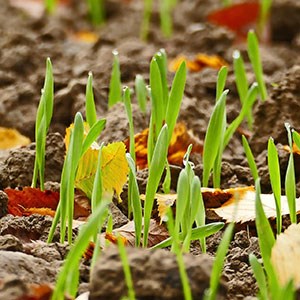SLU Future One Health give grants to five new applications!

Five new research projects will be in progress through grants from SLU Future One Health in order to stimulate transdisciplinary research collaborations within SLU. The research will be carried out in 2021-2022.
The announcement provided an opportunity to apply for; pilot studies, feasibility studies, literature reviews, consortium meetings or consulting assignments, with the aim of strengthening or supplementing applications to other external research funders.
The projects covers many aspects within the area of One Health; the dynamics of AMR, physical activity promoting wellbeing in dogs and their owners, PFAS implicating human and wildlife health, aquaponics combining aquaculture for fish and hydroponics for vegetable production and fighting roundworm AMR with vaccination.
The following applications were granted:
The dynamics of AMR
The project is part of a long-term plan to combine advanced statistical
modelling with molecular bacteriology, bioinformatics and environmental chemistry to gain the necessary detailed understanding of AMR dynamics to support recommendations on antibiotic treatment strategies that will minimize the selective pressure for AMR in different livestock populations, people and the environment.
Main applicant: Elisabeth Rajala, Department of Biomedical Sciences and Veterinary Public Health, VH Faculty.
U-CAN-MOVE - Improved health and wellbeing in dog and its owner using an One Health approach
Humans and dogs live in closer proximity than ever. Increased sedentary behaviour and limited physical activity in dog owners also affect the dogs. Thus, new sustainable ways of increasing physical activity and reducing a sedentary lifestyle need to be identified. The project will will use nature and dog-ownership as motivators for increased physical activity by evaluating the effects of a tailored combined exercise program "Upp och Hoppa – Sund med hund" arranged by the Swedish working dog association. Through this collaboration, including physiotherapists, doctors, veterinarians and specialists in behavioural decision making, animal welfare economics and environmental communication, there are unique opportunities for providing new evidence and possibilities for increased physical activity- to promote health and wellbeing in dog owners and dogs.
Main applicant: Anna Bergh, Department of Clinical Sciences, VH Faculty.
Per- and polyfluoroalkyl substances (PFAS) in the terrestrial food chain: implications for human and wildlife health
The main aim with our pilot project is to achieve preliminary results on a) PFAS concentrations in game and non-game wildlife, b) potential pathogen facilitation and disease risk in PFAS-affected wildlife, and c) potential human health risks associated with consumption of game species from PFAS contaminated areas.
Main applicant: Frauke Ecke, Department of Wildlife, Fish and Environmental Studies, S Faculty.
Reused water flows within the frame of urban aquaponics
Aquaponics are system combining aquaculture for fish and hydroponics for vegetable production with recirculated nutrient flows. They are resource-efficient with an environmentally friendly profile, which can be applied at urban areas to meet urban food security and produce nutrition rich food related to protein and vitamin content. However, urbanization and urban food security are increasing demand of water which enhancing water scarcity in the city. These challenges can also be tackled through urban aquaponics, where circulation of water from fish tanks to plants reduces the need for water. The current project targets research activities focusing on the sustainable reuse of water flows in urban aquaponics in order to increase local food production, decrease environmental impact and water scarcity in urban food production.
Main applicant: Sammar Khalil, Department of Biosystems and Technology, LTV Faculty.
Fighting Roundworm Anti-Microbial Resistance via Vaccination
The project aims to develop a vaccine based on parasitic extracellular vesicles (EVs). Initially, the protein and micro-RNA content of roundworm EVs will be defined. Then we aim to investigate if EVs are immunogenic and if AMR affect the immunogenicity of EVs. Finally, we aim to investigate the impact of anthelmintics on biodiversity in a broader context.
Main applicant: Magnus Åbrink, Department of Biomedical Sciences and Veterinary Public Health, VH Faculty.